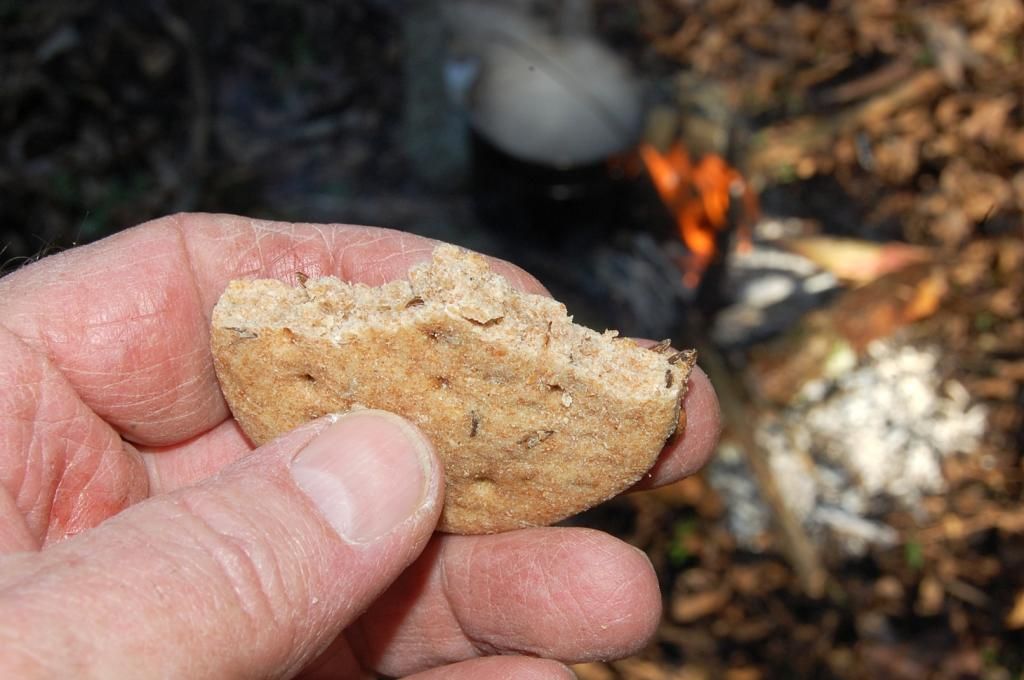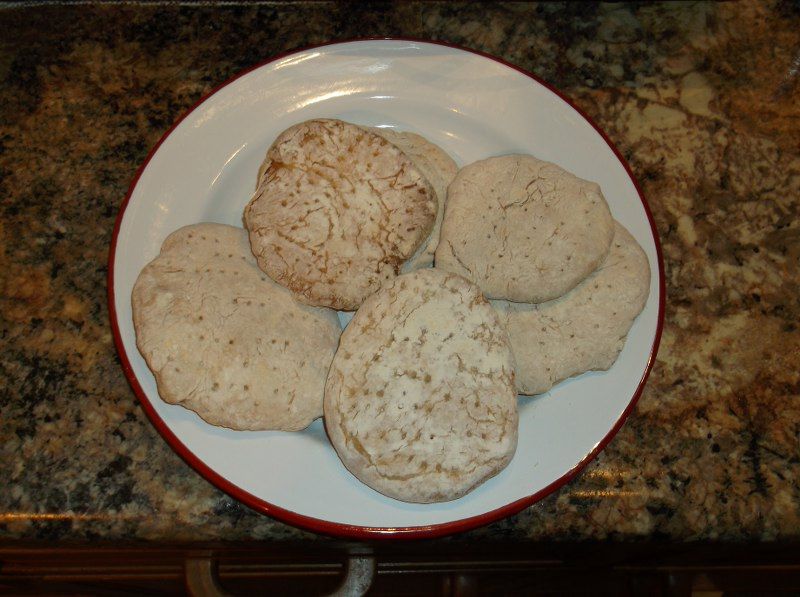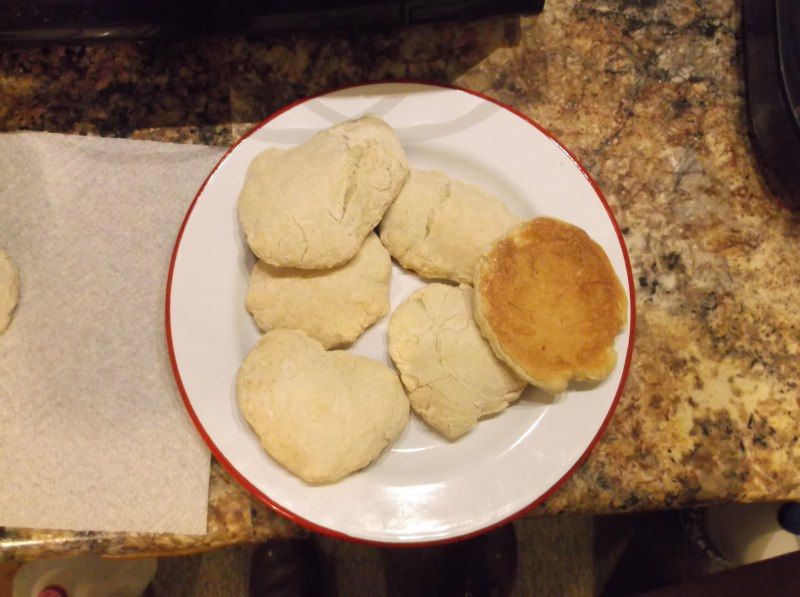- Joined
- Jan 3, 2013
- Messages
- 20,091
- Reaction score
- 1,025
The British have different meanings for all kinds of words that we use.
Well after baking my Corntack or grit biskit, I can say that it is far, far inferior to the wheat version. I tried one at partial bake and one after the first bake and one after the second bake. I even covered one with butter to help the taste. but the more cooked they were the worse they tasted. maybe that is why I don't see corn crackers in the store. anybody who has made their own corn chips knows two things. 1. they need some fat, and 2. they taste terrible if overcooked.
I now understand why sailors mutinied and why soldiers deserted; as well as why starvation was a leading cause of death in the civil war. :haha:
Well after baking my Corntack or grit biskit, I can say that it is far, far inferior to the wheat version. I tried one at partial bake and one after the first bake and one after the second bake. I even covered one with butter to help the taste. but the more cooked they were the worse they tasted. maybe that is why I don't see corn crackers in the store. anybody who has made their own corn chips knows two things. 1. they need some fat, and 2. they taste terrible if overcooked.
I now understand why sailors mutinied and why soldiers deserted; as well as why starvation was a leading cause of death in the civil war. :haha:







